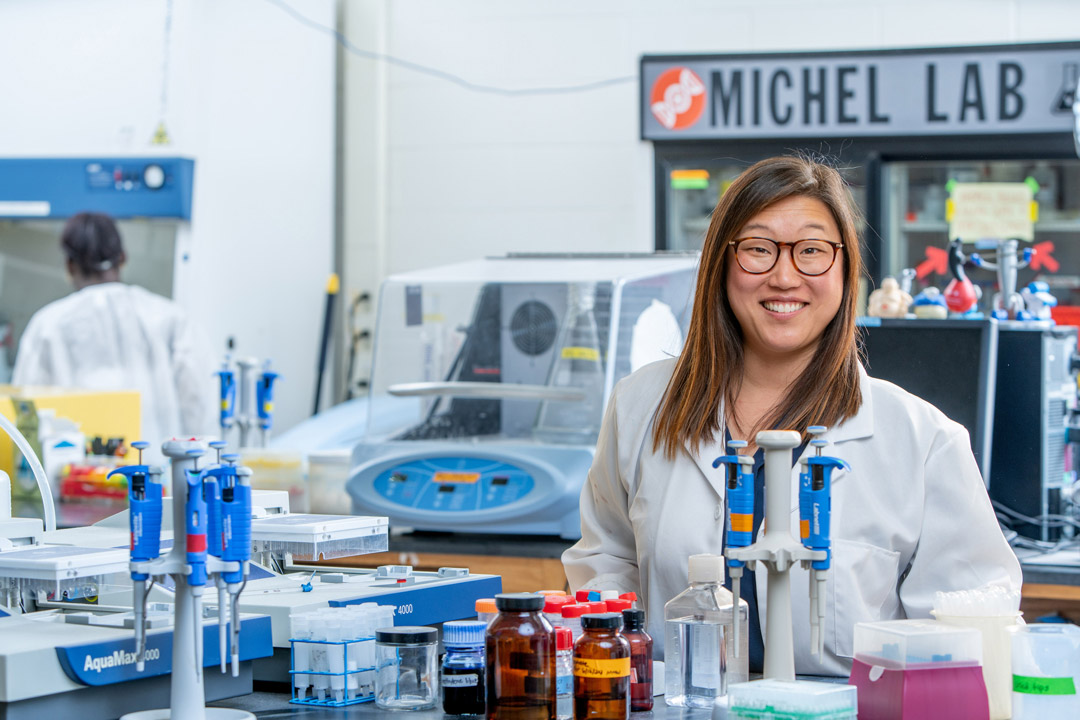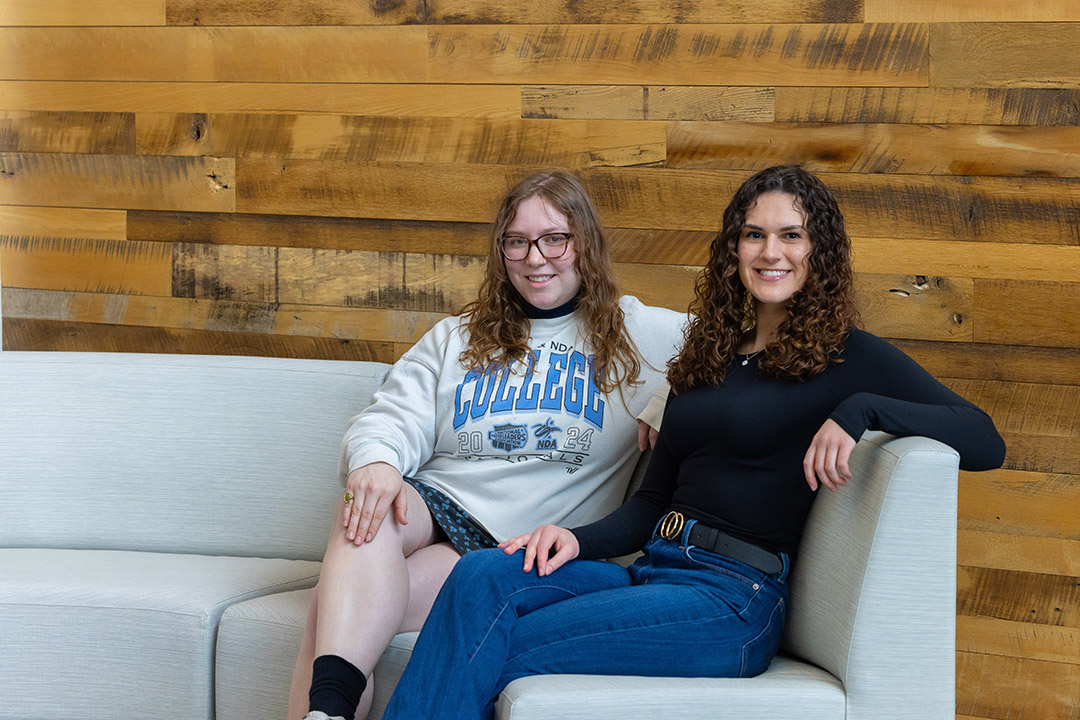Chemistry and Materials Science Professor Lea Michel is honored with the Eisenhart Award for Outstanding Teaching

Scott Hamilton/RIT
Lea Michel, professor in the School of Chemistry and Materials Science, is a 2025 recipient of the Eisenhart Award for Outstanding Teaching.
Educators had a big influence throughout Lea Michel’s educational journey, and now she is being recognized for her impact with the 2025 Eisenhart Award for Outstanding Teaching.
Michel, a professor in the School of Chemistry and Materials Science, said she was happy and grateful upon hearing she was selected for the award, adding, “Teaching has always been important to me, so to be recognized for teaching is really exciting.”
While attending an all-girls high school in Rochester, Michel credits encouraging teachers, especially in STEM, who taught her that women could do anything. The school brought in speakers with careers in science and engineering to inspire students.
That influence led Michel to major in physics and math at Colgate University. While studying abroad in Wales, her professor, who was a neuroscientist, suggested she look into biophysics to continue her academic career. Michel said she trusted his insight and then applied to Ph.D. programs, eventually enrolling at the University of Rochester in biophysics.
It was there in her favorite professor’s chemistry lab that she pivoted into biochemistry. One day, her adviser was traveling for a conference and tasked Michel with subbing for her class full of 250 students in a large lecture hall. Nervous but exhilarated, Michel taught her first class. In attendance that day was another professor she worked with. He congratulated her afterward and told her teaching was something she could do.
“Being in front of people, talking about science, it always felt very natural,” said Michel. “It was my favorite part of science. I wanted to be with students and become a professor.”
At RIT, along with teaching classes, running a lab, and being on various committees, Michel was named the College of Science’s first director of diversity, equity, and inclusion in 2022. She credits strong women mentors for making a huge difference when she was a physics major, where nearly all of the professors were men.
“When I pick people to join my lab, I pick all different types of students because I know that research isn’t just about being smart,” said Michel. “It’s about perseverance and determination. You’ve got to really want to do the work, and that is reflected in the person themselves.”
Just like trial and error happens in the lab, Michel has learned that teaching is also a learning process.
“None of us were taught to be professors,” said Michel. “Professors were taught to be scientists. It takes a lot of effort and practice. Just like we work at our science, we have to work at our teaching.”









